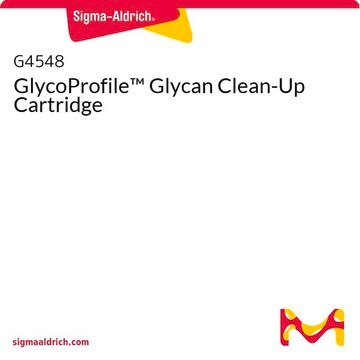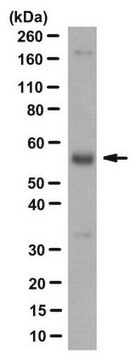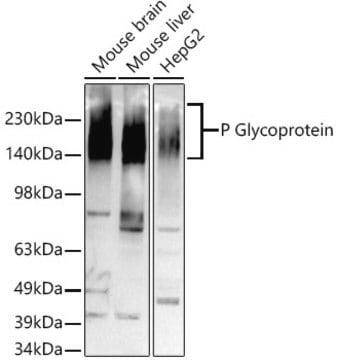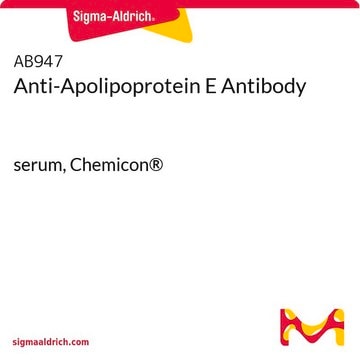ABS1030
Anti-Apolipoprotein D Antibody
serum, from rabbit
Synonym(e):
ApoD, Apolipoprotein D, Apo-D
About This Item
Empfohlene Produkte
Biologische Quelle
rabbit
Qualitätsniveau
Antikörperform
serum
Antikörper-Produkttyp
primary antibodies
Klon
polyclonal
Speziesreaktivität
human
Methode(n)
ELISA: suitable
western blot: suitable
NCBI-Hinterlegungsnummer
UniProt-Hinterlegungsnummer
Versandbedingung
dry ice
Posttranslationale Modifikation Target
unmodified
Angaben zum Gen
human ... APOD(347)
Allgemeine Beschreibung
Immunogen
Anwendung
Zelluläre Signaltransduktion
Signalübertragung & Neurowissenschaft
Western Blotting Analysis: A representative lot of this antibody at 1:5000 dilution detected endogenouse Apolipoprotein D in 5 µl of human plasma (Bottcher, A., et al. J. Lipid Res. 2000. 41: 905–915.)
Qualität
Western Blotting Analysis: A 1:1000 dilution of this antibody detected 0.05 µg of purified human Apolipoprotein D
Zielbeschreibung
Physikalische Form
Lagerung und Haltbarkeit
Handling Recommendations: Upon receipt and prior to removing the cap, centrifuge the vial and gently mix the solution. Aliquot into microcentrifuge tubes and store at -20°C. Avoid repeated freeze/thaw cycles, which may damage IgG and affect product performance."
Sonstige Hinweise
Haftungsausschluss
Sie haben nicht das passende Produkt gefunden?
Probieren Sie unser Produkt-Auswahlhilfe. aus.
Lagerklassenschlüssel
10 - Combustible liquids
WGK
WGK 1
Analysenzertifikate (COA)
Suchen Sie nach Analysenzertifikate (COA), indem Sie die Lot-/Chargennummer des Produkts eingeben. Lot- und Chargennummern sind auf dem Produktetikett hinter den Wörtern ‘Lot’ oder ‘Batch’ (Lot oder Charge) zu finden.
Besitzen Sie dieses Produkt bereits?
In der Dokumentenbibliothek finden Sie die Dokumentation zu den Produkten, die Sie kürzlich erworben haben.
Unser Team von Wissenschaftlern verfügt über Erfahrung in allen Forschungsbereichen einschließlich Life Science, Materialwissenschaften, chemischer Synthese, Chromatographie, Analytik und vielen mehr..
Setzen Sie sich mit dem technischen Dienst in Verbindung.








